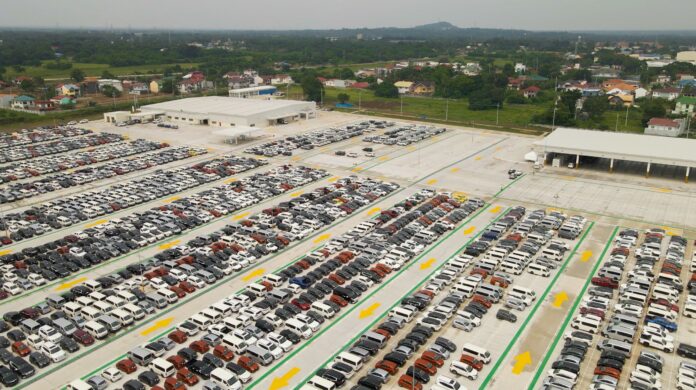-
Toyota Motors Philippines has been granted level 1 accreditation under the Bureau of Customs’ Authorized Economic Operator Program
-
The company is the first importer granted AEO accreditation since BOC launched the program in 2019
-
As Level 1 AEO member, Toyota is exempt from renewal of accreditation; eligible to conduct self-assessment and supplementary goods declaration; and enjoys a dedicated help desk
-
The AEO Office is currently processing the application of four other importers
Toyota Motors Philippines Corp. (TMPC) has been granted level 1 accreditation under the Bureau of Customs’ (BOC) Authorized Economic Operator (AEO) Program, the first importer in the country to have qualified under the program, BOC deputy commissioner Edward James Dy Buco told PortCalls in a text message.
Aside from TMPC, Dy Buco said the AEO Office, which handles accreditation and implementation of the program, is currently processing the application of four other importers.
TMPC is the largest automotive company in the country with over 70 dealers nationwide. Its manufacturing plant has the capacity to produce over 55,000 units per year as of December 2020.
In a February 9 memo, Dy Buco directed concerned BOC officers and offices to afford TMPC benefits pursuant to Customs Memorandum Order (CMO) No. 09-2020, which provides guidelines for the pilot implementation of the AEO program for importers and exporters.
As an AEO member, TMPC will be exempted from renewal of accreditation under any customs accreditation system. In lieu of the annual renewal of accreditation, AEO members are only required to periodically update its information and corresponding documentary requirements pursuant to membership responsibilities of an AEO under CMO 09-2020.
TMPC as a Level 1 member is also eligible for self-assessment, supplementary goods declaration, and a dedicated help desk.
The memo said BOC may allow the car company to use trade documents (eg, bill of lading, invoice) to self-assess its duty and tax liability. “For this purpose, information declared by an AEO member in its Goods Declaration based on its self-assessment shall be accepted” by the bureau, it added.
RELATED READ: BOC releases rules on AEO online portal system
The AEO Office may consider upgrading a Level 1 member to Level 2 or 3, depending on the AEO’s degree of compliance with the requirements of accreditation. For Level 2 members, benefits include those for Level 1 plus a dedicated processing lane, advance clearance process, periodic lodgement, one-time exemption certificate, and expedited customs clearance for exports.
A Level 3 member will have extended additional benefits that the customs commissioner, in consultation with the AEO Office to be created, will identify.
AEO members are, however, still subject to post-clearance audits to ensure compliance.
BOC earlier said part of its 10-point priority program this year is to fully operationalize and promote its AEO program.
This year, BOC said it will actively participate in the ongoing development of an AEO mutual recognition arrangement (MRA) with all Association of Southeast Asian Nations member-countries.
An MRA refers to a formal document between two or more customs administrations outlining circumstances and conditions for recognizing and accepting the AEO programs of the signing parties.
BOC earlier said it would take part in meetings to develop an ASEAN AEO MRA to be completed by 2025.
Aside from importers and exporters, other stakeholders will be eligible at a later time to apply for an AEO accreditation. BOC will issue a separate order to implement this.
BOC in December 2019 launched the AEO Program in compliance with the country’s commitment to the World Customs Organization’s SAFE Framework of Standards to Secure and Facilitate Global Trade.
READ: BOC launches AEO program for 2020 implementation
The AEO Program represents a customs-to-business partnership that seeks to enhance international supply chain security and facilitate movement of legitimate goods.
Companies accredited under the program will be recognized as trusted allies by the BOC and will be entitled to, among others, dedicated processing lanes, resulting in reduced processing period; recognition as a low-risk company; and reduced inspection or expedited clearance by other Customs authorities should certified status be recognized by overseas countries under a mutual recognition program established by bilateral or multilateral arrangement.
Implementation of the AEO program in the Philippines became possible in 2016 with the passage of Republic Act No. 10863, otherwise known as the Customs Modernization and Tariff Act.
Once granted, accreditation under the AEO Program will last until suspended, revoked, or cancelled through voluntary withdrawal from the program. – Roumina Pablo





